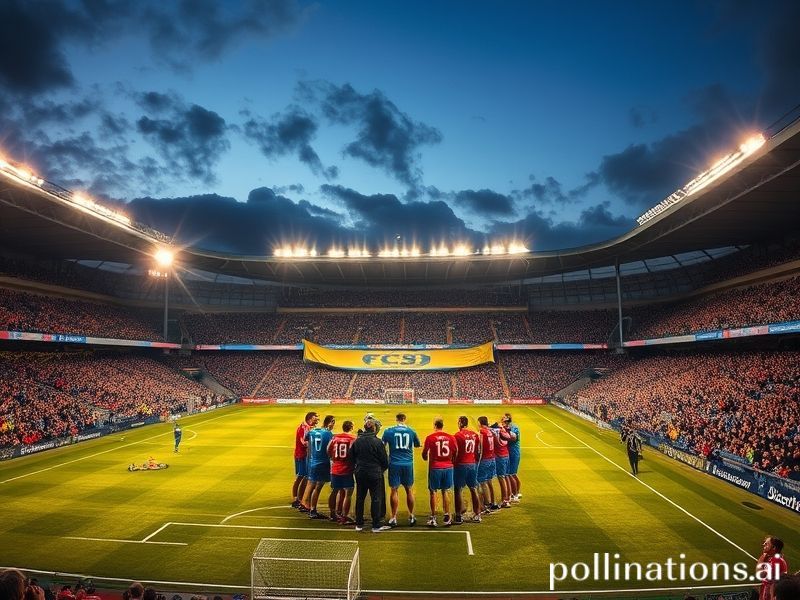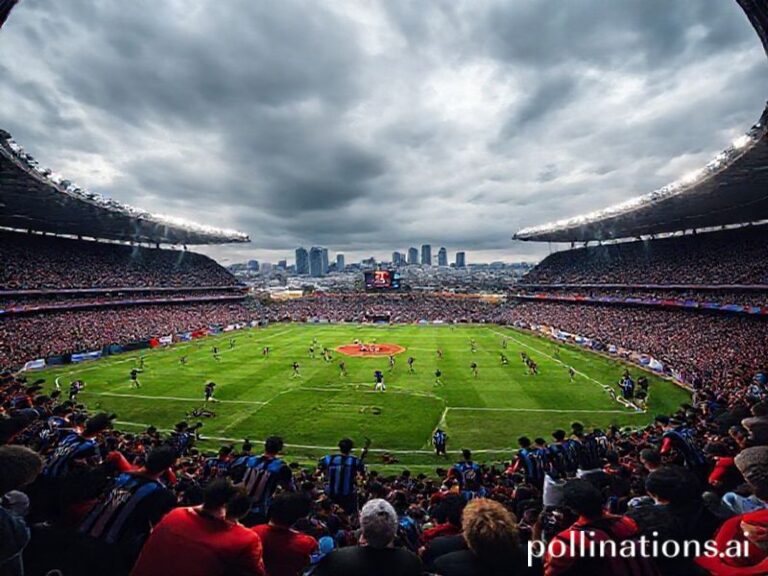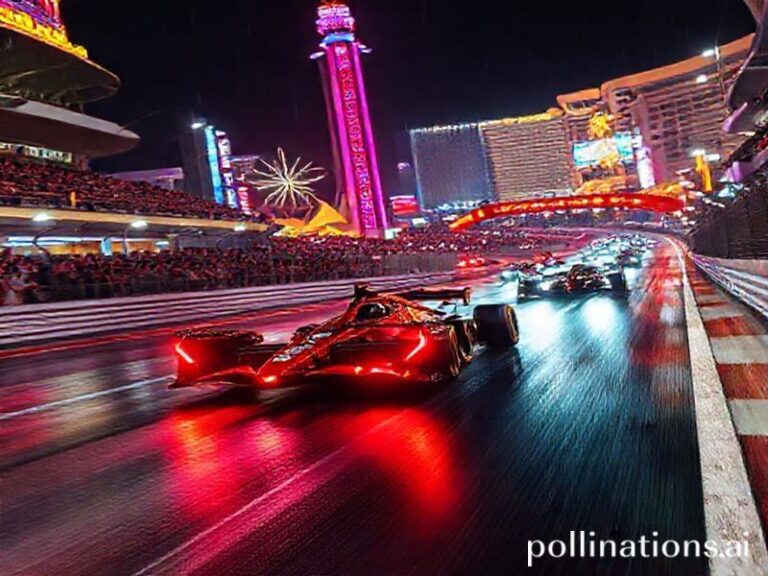Balkan Shadows and VAR Gods: Why a Forgotten Romanian Derby Still Matters to the World
Botoșani vs FCSB: A Balkan Derby as Geopolitical Metaphor
By Our Man in the Moldavian Mud, filing from a press box that smells of wet wool and existential dread
One must begin, dear Dave’s Locker reader, by confessing the obvious: on the global index of Things That Keep the Planet Spinning, a Friday-night Liga I fixture between FC Botoșani and FCSB ranks somewhere between a TikTok of a cat playing the theremin and the latest communiqué from the G-7 on ocean plastic. Yet here we are, pretending it matters, because football is the last reliable opium of the provinces, and the provinces, as ever, are where the world quietly falls apart.
Botoșani—population roughly 100,000, plus three stray dogs per inhabitant—lies in Romania’s northeastern armpit, a place so accustomed to being overlooked that locals greet cartographers with open suspicion. FCSB, meanwhile, is the phoenix that rose from the ashes of Steaua Bucharest after a legal slap-fight so baroque it could only have happened in a country where Kafka is considered light beach reading. Tonight, then, is less a match than a custody battle played out in studs and swearwords.
The international significance? Allow me to stretch the canvas. In the grand bazaar of soft power, Eastern Europe currently trades on nostalgia: think Poland selling martyrdom chic, Hungary hawking illiberal democracy as artisanal authoritarianism. Romania’s offering is simpler: a 1990s football nostalgia trip, complete with smoke bombs, Orthodox priests in the stands, and chants that translate loosely to “We’d sell our kidneys for a Europa League qualifier.” The West nods approvingly, because it’s easier to export retro kitsch than to address why half the stadium’s toilets still flush into the Prut River.
On the pitch, the plot is Shakespearean, if Shakespeare had been held hostage by a betting syndicate. Botoșani, owned by a local construction magnate whose stadium upgrades include seats that occasionally face the field, needs a win to postpone mathematical relegation until at least the Orthodox Easter. FCSB—bankrolled by a man who lists his occupation on LinkedIn simply as “controversial”—requires three points to keep pace with CFR Cluj, a club whose fan base could fit comfortably inside a medium-sized IKEA. The stakes, in other words, are microscopic, but try telling that to the ultras who’ve tattooed their mothers’ maiden names on their necks just in case of sudden amnesia.
Globally, the game streams on Bet365’s 47th-tier channel, somewhere between Sri Lankan beach volleyball and competitive cornhole. Viewers tune in less for tactics than for the anthropological thrill of watching two sets of fans scream identical insults at opposing players who, by Thursday morning, will probably be teammates on the Turkish second-division club they mutually hate. It’s a reminder that in football, as in geopolitics, yesterday’s enemy is tomorrow’s co-defendant.
The referee tonight is a Slovenian gentleman whose day job involves mediating disputes between Alpine goat farmers—experience that should translate nicely to the Moldavian terrace’s traditional greeting of “We know where your children go to school.” VAR, that gleaming monument to human fallibility, hovers overhead like a sarcastic angel, ready to disallow a goal because someone’s shoelace was offside in 1997.
Final whistle: a 1-1 draw, obviously. Botoșani’s striker misses a sitter so egregious it sparks a minor currency devaluation, while FCSB’s keeper makes a stoppage-time save that will be cited in his upcoming trial for tax evasion. Both sets of supporters exit singing, united in the comforting delusion that next year will be different, a sentiment the rest of the planet recognizes as the universal soundtrack to decline.
And so the world spins on. Somewhere in Brussels, a bureaucrat adds “Romanian football governance” to a PowerPoint slide titled “Peripheral Anxieties.” In Washington, the CIA files another report on match-fixing patterns it will never fully comprehend. And in Botoșani, a teenager scrapes “Steaua ’86” off his binder and replaces it with “FCSB Never Dies,” blissfully unaware that in the grand algorithm of late capitalism, we are all just stoppage time waiting to happen.







